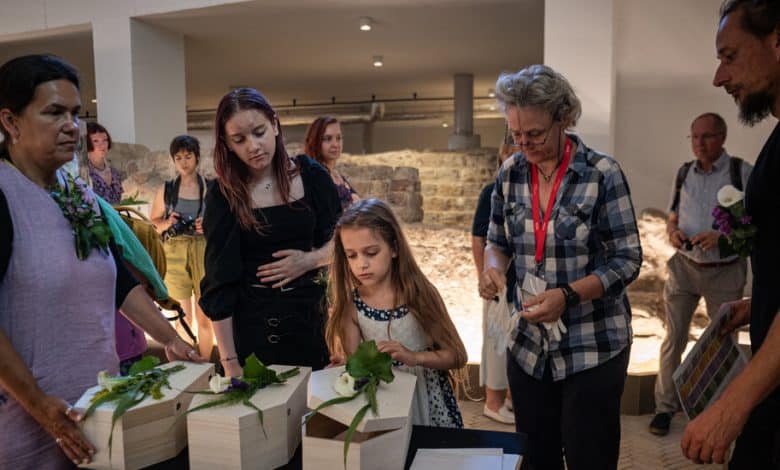Berlin Honors Earliest Settlers, Whose Bones Shared Their Secrets

From under a parking lot in the center of Berlin, a team of archaeologists unearthed ancient human skeletons of nearly 4,000 forgotten dead from a bygone church cemetery paved over by a former Communist regime.
That was nearly two decades ago. In that time, scientists plumbed information from inside bones — some older than 1160 — and in between ancient teeth. They made startling discoveries, including that the city was inhabited nearly a century earlier than believed.
But bones hold only so many secrets. With much of the research on these earliest Berliners complete, the remains of 100 medieval and early modern babies, children and adults have now been returned to the heart of the city. They will rest in state in a museum, Petri Berlin, at the same place where they had been ignominiously blacktopped over.
And so, on a Saturday last month, in an act of repentance and reverence dreamed up by the project’s lead archaeologist, a horse-drawn hearse and 100 present-day Berliners carried the coffins of the early settlers through the streets of the city in a grand funeral.
“I thought, We have found the graves of almost 4,000 people, and I wanted to show how much life that is,” said Claudia M. Melisch, the lead archaeologist who oversaw the excavation of the former cemetery of St. Peter’s Church, where the bodies had been buried, long before the church was torn down in 1964. “It is a gesture from us recognizing their existence.”